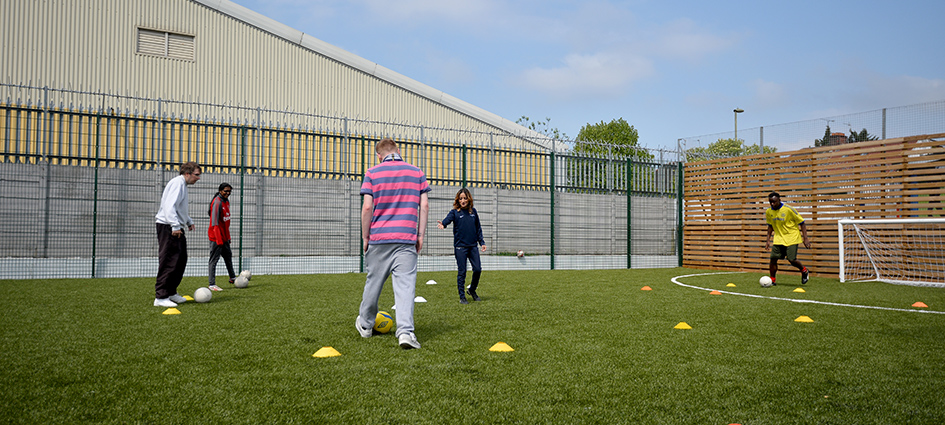
Football as a positive tool for mental health
- Peter Glynn
- 15 April 2020
QPR academy coach, Manisha Tailor, talks to The Boot Room about supporting young players’ mental health and her own project using football to help improve well-being.
Children first Having had first-hand experience of taking care of people with mental health issues and also working as a primary school teacher, it’s important to remember that coaches are working with young players and they’re children first. The environment that’s created for them should reflect that.
Ensuring there’s a safe learning environment that allows for open and honest conversations about how young people feel, is important, because ultimately the safer they feel the more likely they are to open up about the things that matter to them.
Football as a positive toolWith my work away from QPR in raising awareness of mental health, particularly with young people, I’ve found football to be a positive tool in developing confidence, social interaction and well-being. Football is such a universal sport so it allows everybody to participate.

Positive values Ensuring all your players have contributed to and are aware of their values charter and reflecting this in your coaching will help all players and children feel they have a place there.
Also, be honest yourself in seeking advice and support from experts in the field to help provide strategies to help you support your players.

Helping othersOutside of the work I do with QPR, I run a mental health project that I’ve initiated. The project provides me with positive affirmation - knowing that what I’m going through every day with my brother [who suffers from mental health problems] can be a motivation tool for me to help other people.
I’ve authored a book as a teaching resource called Children in mind - my brother is my inspiration for developing this – and developed workshops.
Positive affirmation is important to me as I feel like I’m doing something good, and it’s also about offering your journey to help someone else who might be going through something similar.
It’s a great feeling to know you can help somebody, because I wouldn’t want any child to go through what my brother goes through. If you can offer some assistance to help support other people, then why would you not do it?
Helping others by helping yourself Finding time to engage in things that provide you with release of stress is important for your own mental health and when helping others. For me it’s exercise because I’ve found that you’re far more effective in a workplace if you can maintain your energy levels and your enthusiasm. For you to do that you need to be able to find ways of releasing some of that stress.
Exercise gives me half an hour from away from the stresses that I have in my home life and the pressures of work. I think that’s an important part of the process of helping you to manage your own emotions and reset your mindset, so you’re energised and refreshed and ready to go.
The FA are currently working with Heads Together - a mental health initiative spearheaded by The Royal Foundation of The Duke and Duchess of Cambridge – on the ‘Heads up’ campaign, which aims to raise awareness of mental health in football.
For further details about how to support your players’ mental health read the official ‘Heads up’ guidance notes for managers and coaches working in adult football here.


